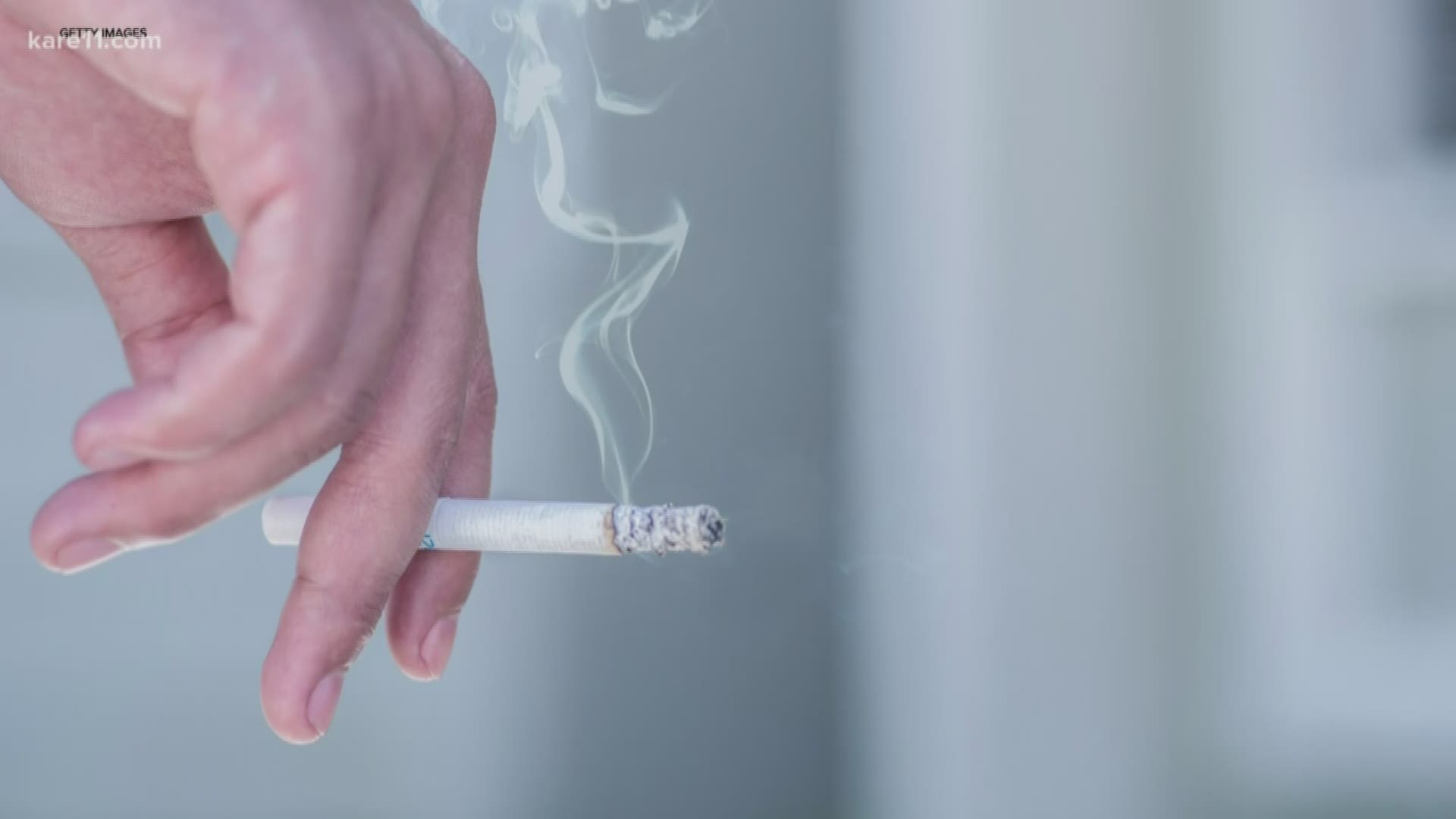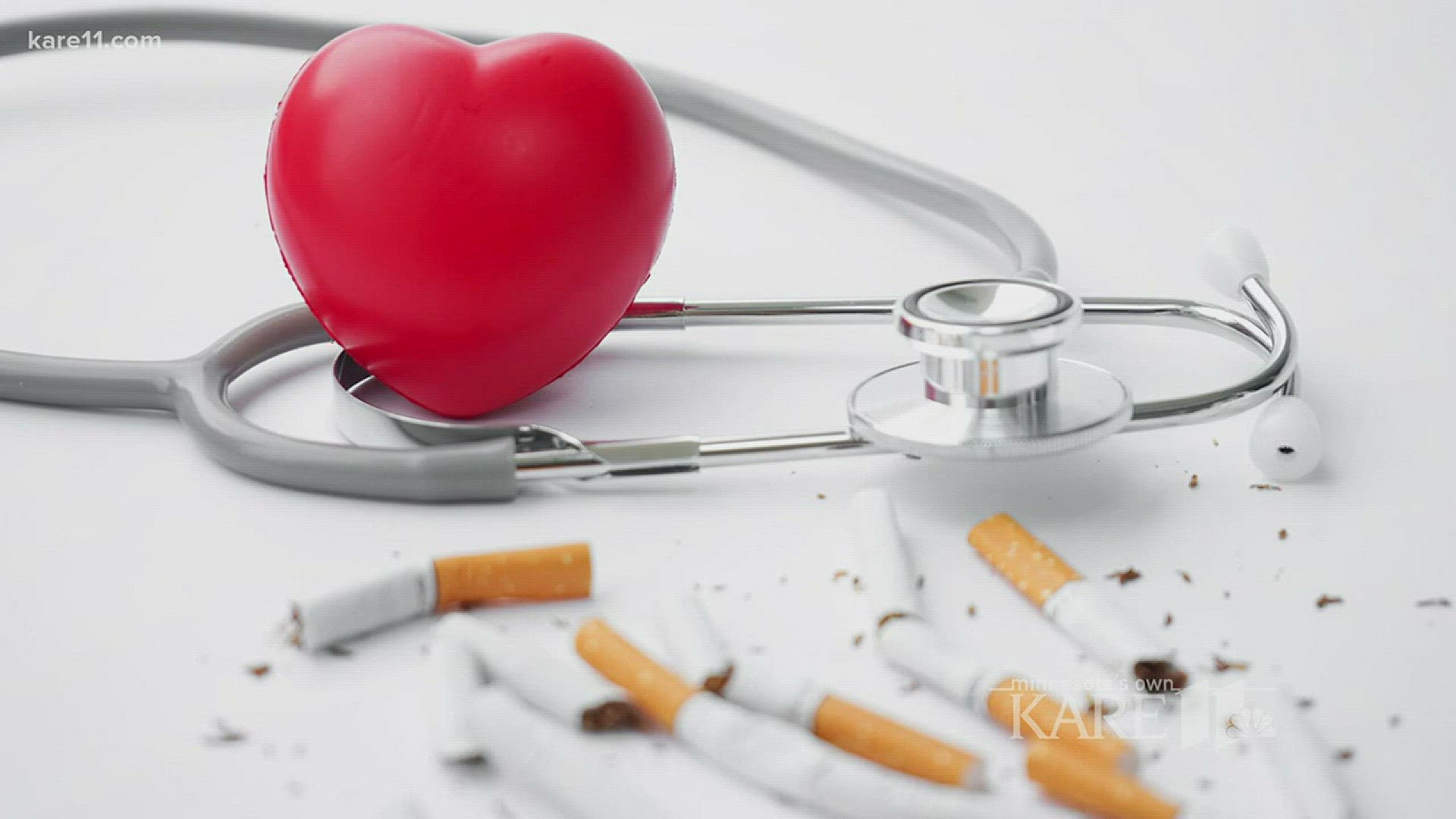ROCHESTER, Minnesota — We don't have a lot of data related to smoking and COVID-19 but Dr. J. Taylor Hays has been following what's happening in China.
"If you look at people who had serious and critical illness, the smokers were in some of the studies double the nonsmokers or somewhat higher. It's just that the numbers were generally small because this is early data. So it didn't reach statistical significance but it looks like a clinically important difference between smokers and nonsmokers and their risks for complication," said Dr. Hays, professor of medicine and the director of Mayo Clinic's Nicotine Dependence Center.
Dr. Hays said there are a few reasons why smokers may be a high risk group. The first one being that people with underlying health conditions are more at risk.
"If you take a group of people—100 smokers and 100 never smokers—you're going to see more cardiovascular disease, more diabetes, more chronic lung disease in the smoking group and so they'll be at higher risk for that reason," Dr. Hays.
According to the Centers for Disease Control and Prevention, smoking can compromise the immune system which makes people at a higher risk for severe illness from COVID-19. Dr. Hays said smoking reduces the lungs' defenses to infection
"The primary way it does that is by causing inflammation itself. So there's more inflammation in the airways to begin with," Dr. Hays said.
The lungs' cilia also become temporarily paralyzed from smoking, making it harder to clear out mucus and other substances.
"There's more mucus production, more pooling of mucus, more of the infectious particles stay in the lung and so people are more likely to get more severe infection, more prolonged infection and higher risk for serious complication like pneumonia requiring ventilatory support and even death," Dr. Hays said.
This applies also to people who vape or inhale marijuana smoke, according to Dr. Hays. He said they're probably at a lower risk than cigarette smokers but still higher than nonsmokers.
"It's going to take a long time to figure that out because we'll have to look at all the data from this outbreak once we're passed it," he said.
Although it's not easy, Dr. Hays said the best way smokers can protect themselves is to quit.
"Although it's a period of high stress and people say, 'Well, I need to smoke to reduce my stress,' it's also one of those teachable moments," Dr. Hays said.
On Wednesday, the Minnesota Department of Health announced it had launched Quit Partner (1-800-QUIT-NOW) to help people who want to quit smoking, vaping, chewing or using other tobacco products.
The new free quit-tobacco programs are available online, by phone and by mail. Quit Partner offers support, like one-on-one coaching and quit medication (nicotine patches, gum or lozenges) delivered by mail.
You can find more information, here.
KARE 11’s coverage of the coronavirus is rooted in Facts, not Fear. Visit kare11.com/coronavirus for comprehensive coverage, find out what you need to know about the Midwest specifically, learn more about the symptoms, and see what companies in Minnesota are hiring. Have a question? Text it to us at 763-797-7215. And get the latest coronavirus updates sent right to your inbox every morning. Subscribe to the KARE 11 Sunrise newsletter here. Help local families in need: www.kare11.com/give11.
The state of Minnesota has set up a hotline for general questions about coronavirus at 651-201-3920 or 1-800-657-3903, available 7 a.m. to 7 p.m.


